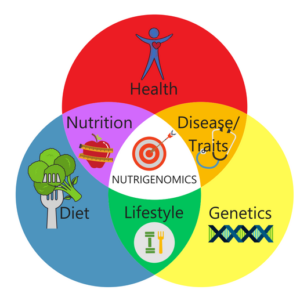Pancreatitis
What is Pancreatitis
The pancreas is a large gland behind the stomach and next to the small intestine. The pancreas has 2 main functions:
- It makes enzymes, which help digest proteins, fats, and carbohydrates before they can be absorbed in the intestine.
- It makes hormones (chemicals made from glands), the most important of which is insulin, which control how the body uses and stores sugar (glucose), its main source of energy.
Pancreatitis is a disease in which the pancreas becomes inflamed. Pancreatic damage happens when the digestive enzymes are activated before they are released into the small intestine and begin attacking the pancreas.
There are two forms of pancreatitis – Acute and Chronic.
Chronic pancreatitis is inflammation of the pancreas that does not heal or improve – it gets worse over time and leads to permanent damage. Chronic pancreatitis eventually impairs a patient’s ability to digest food and make pancreatic hormones. Chronic pancreatitis often develops in patients between the ages of 30 and 40, and is more common in men than women.
Whereas there are causes of chronic pancreatitis that are unknown; several factors have been identified to cause chronic pancreatitis:
- Heavy alcohol use
- Autoimmune conditions (when the body’s immune system attacks its own body)
- Genetic mutations due to cystic fibrosis
- Blocked pancreatic duct or common bile duct
- Familial pancreatitis (runs in the family—with 2 or more immediate family members with a history of pancreatitis)
Need to consult?
Quickly Book an Appointment.

Symptoms of Chronic Pancreatitis
Most individuals with chronic pancreatitis experience upper abdominal pain, although some have no pain at all. The pain may spread to the back, become worse with eating or drinking, and become constant and disabling. Other symptoms include the following:
- Nausea
- Vomiting
- Losing weight without trying
- Oily, smelly stools (steatorrhea)
Individuals with chronic pancreatitis frequently lose weight, even when their appetite and eating habits are normal. The weight loss occurs because the body does not secrete enough pancreatic enzymes to digest food, so nutrients are not absorbed normally, leading to malnutrition.
Acute Pancreatitis
Acute pancreatitis is an inflammatory condition of the pancreas that is painful and at times deadly. Diagnosis of pancreatic problems is often difficult and treatments are therefore delayed because the organ is relatively inaccessible.
Causes and Symptoms of Acute Pancreatitis
The most common cause of acute pancreatitis is stones in the gallbladder. Gallstones pass through the common bile duct to enter the small intestine. At the entry of the small intestine, the main pancreatic duct joins or lies immediately next to the common bile duct. It is believed that stones that get stuck in the common bile duct impinge on the main pancreatic duct, causing an obstruction of the normal flow of pancreatic fluid and leading to pancreatic injury. Another way that a stone can cause pancreatitis is by causing a backflow of bile into the pancreatic duct, resulting in pancreatic injury
Acute pancreatitis usually begins with gradual or sudden pain in the upper abdomen that sometimes extends to the back. The pain may be mild at first and become worse after eating. The pain is often severe, constant, and commonly lasts for several days in the absence of treatment. A person with acute pancreatitis usually looks and feels very ill and needs immediate medical attention. Other symptoms can include:
- Swollen and tender abdomen
- Nausea and vomiting
- Fever
- Rapid pulse
Nutrition plays a very important role for patients suffering from pancreatitis.
Let's get started with treating your condition...
At Food & Wellness we believe that every individual is different and needs special attention. We adapt our programme to your existing lifestyle and try not to change anything drastically so you can easily transition. Over a period of time we ensure results and help you restore your health.
Related Articles

Unlocking Nutrigenomics: Exploring the Dynamic Interaction between Genes and Nutrition
Discover the fascinating world of nutrigenomics, where genes and nutrition intertwine to shape our health. Nutrigenomics explores the intricate relationship between our genetic makeup and the food we consume, offering insights into how our bodies process nutrients and respond to different dietary factors. Uncover the connections between genes, folate, caffeine, and more, as we delve into the potential of personalized nutrition for optimizing health outcomes. Join us on this enlightening journey into nutrigenomics and unlock the power of genetics for a healthier, tailored approach to wellness.

Water retention : All you need to know about it!
We’ve all heard the term “Water weight” being thrown around, but if you don’t understand what exactly it is, then those especially in the midst of a weight loss program can get quite discouraged by its contingency. Contrary to popular belief, Water retention is actually a helpful signal since it indicates the imbalance in the body.

Health or Success: What should be the priority?
How many times have you dashed out in the morning missing your breakfast because you were late for a meeting? Or how many times have you let your adolescent kid get away with store-bought junk food instead of a healthy meal because you just didn’t have the time to spend in the kitchen? Can you count the number of cups of coffee you’ve gulped in the office because you were stressed from work?


